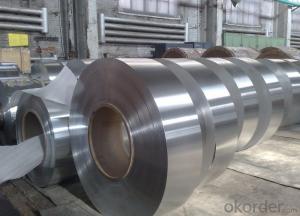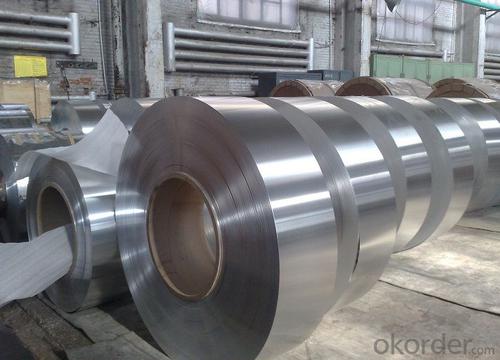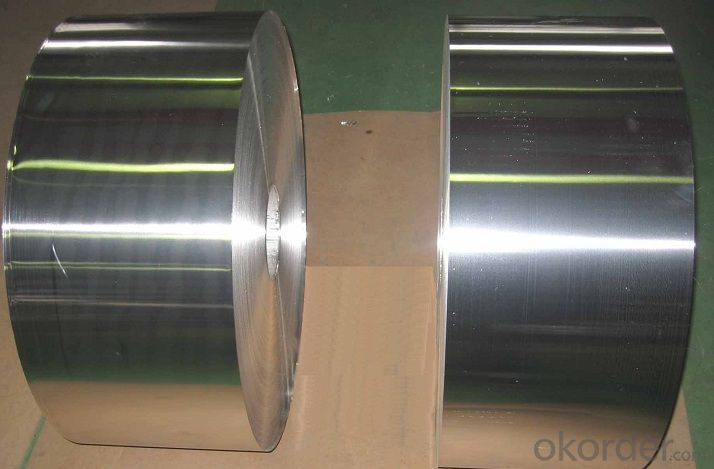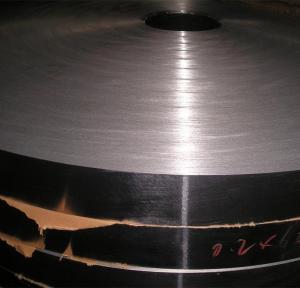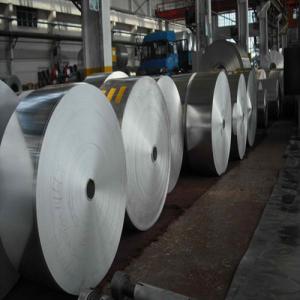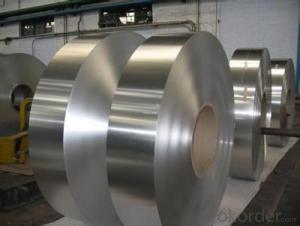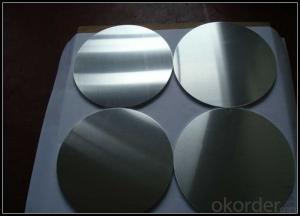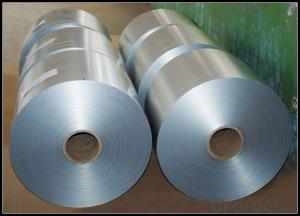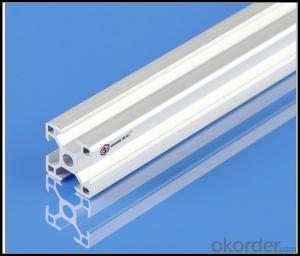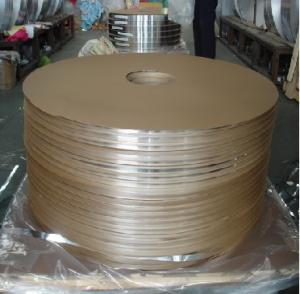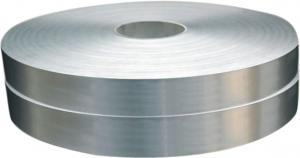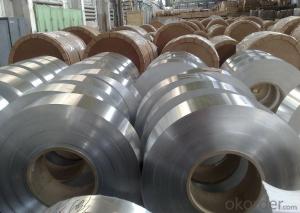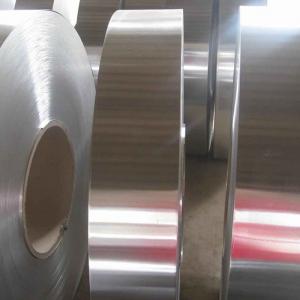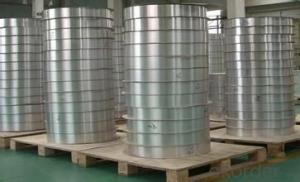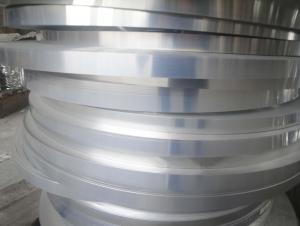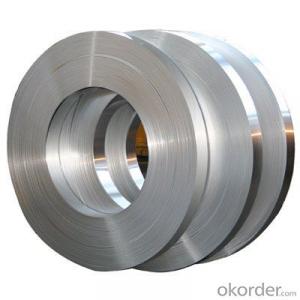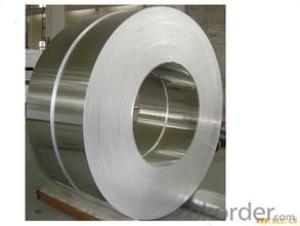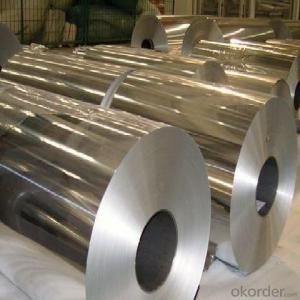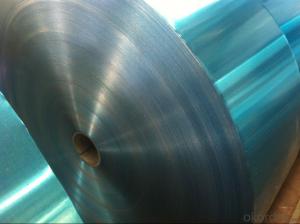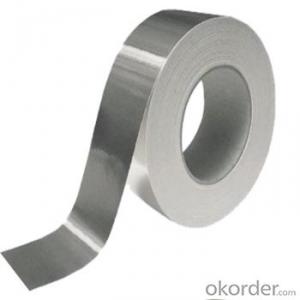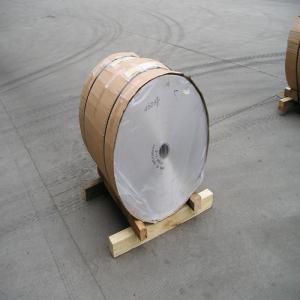Aluminum Strips Bunnings Ho Temper Transformer Aluminium Strips China Supply
- Loading Port:
- Shanghai
- Payment Terms:
- TT OR LC
- Min Order Qty:
- 5 m.t.
- Supply Capability:
- 5000 m.t./month
OKorder Service Pledge
OKorder Financial Service
You Might Also Like
lProduct Introduction
Production name | Transformer Aluminium Strip |
Alloy | 1350,1060,1070 |
Temper | O |
Thickness | 0.2mm-3.0mm |
Width | slitting range 10-1500mm |
Length | can be customized as your requirement |
Inner diameter | 150mm-505mm |
Outer diameter | 300mm-1500mm |
Electrical conductivity | 35.82 m/Ω.m2 |
Tensile strength | 70Mpa |
Elongation | 40% |
l Packaging & Delivery
Packaging detail: Covering with brown paper and plastic bag then packed with wooden plywood then directly loading into container for transshipment. For the thickness which is more than 1.50mm, one paper interleave into two sheets.
Delivery detail: within 30days
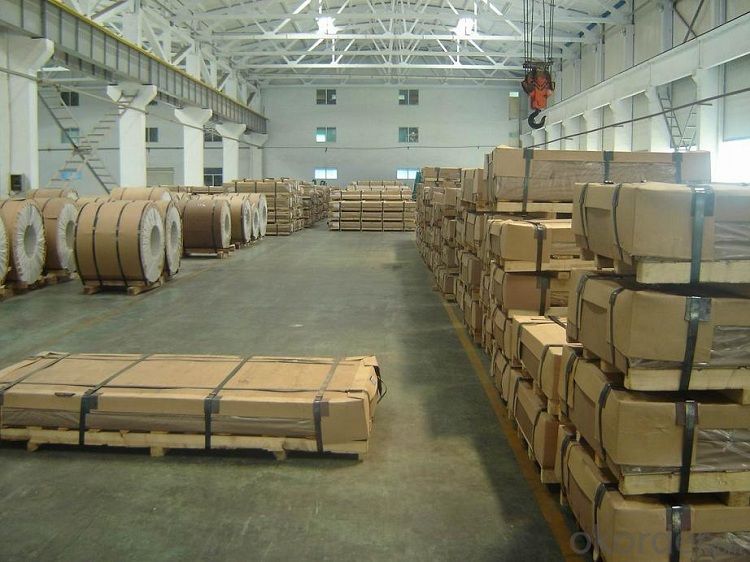
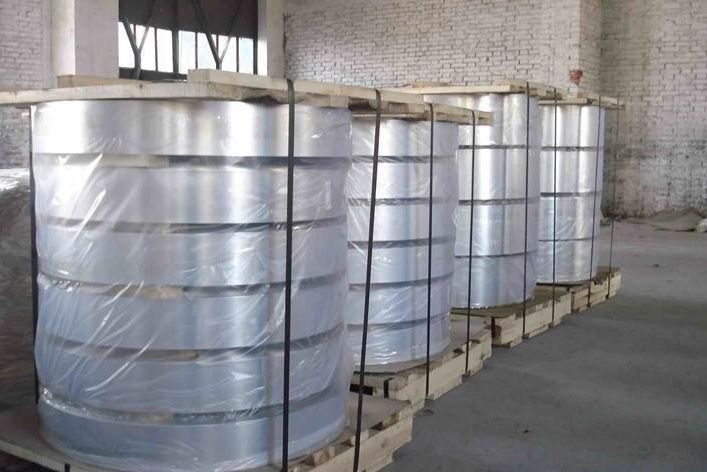
l Company Profile
CNBM International Corporation, China National Building Materials (Group) Corporation, is one of the largest companies in China building material & equipment industry, with 42,800 employees and sales in 2005 of US Dollar 4.395 billion. In 2006, China National Building Material Company Limited was listed on Hong Kong Stock Market with the stock code as 3323.
The business scope of CNBM covers from manufacturing and sales of a series of building materials to scientific research and design, import and export trade. In many of these fields, CNBM is playing the leading role
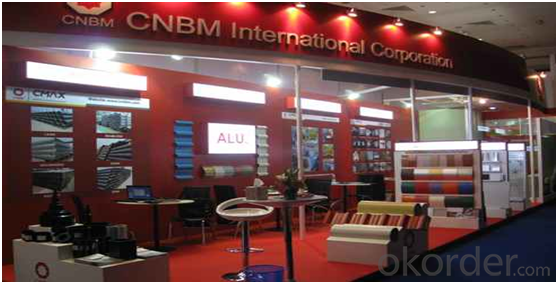 .
.
l CNBM World Wide

l Product Images
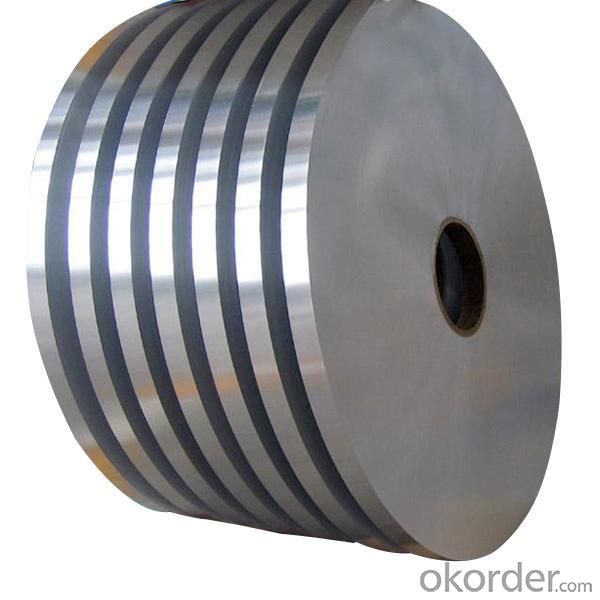
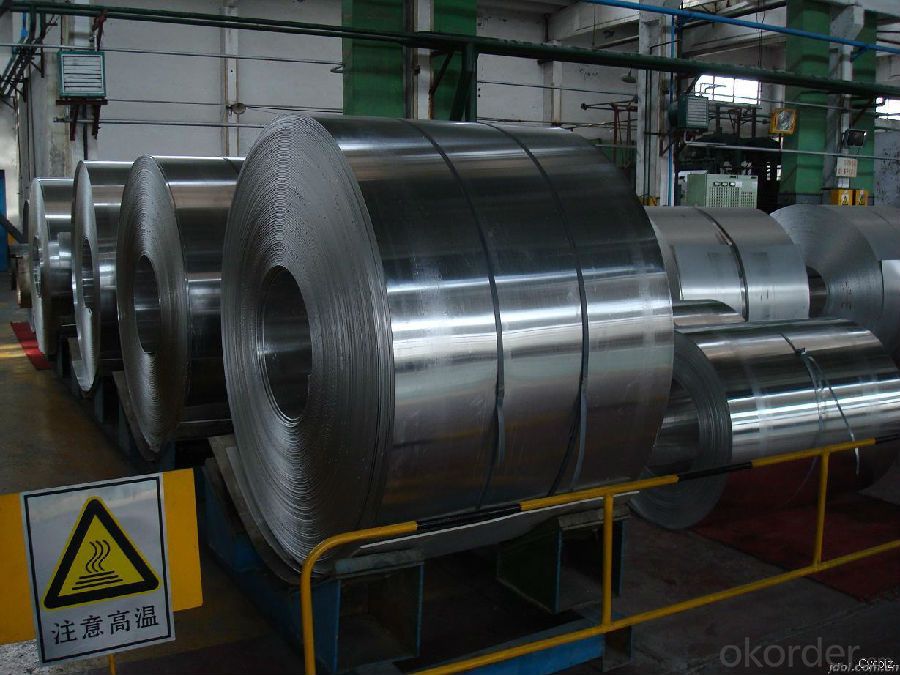
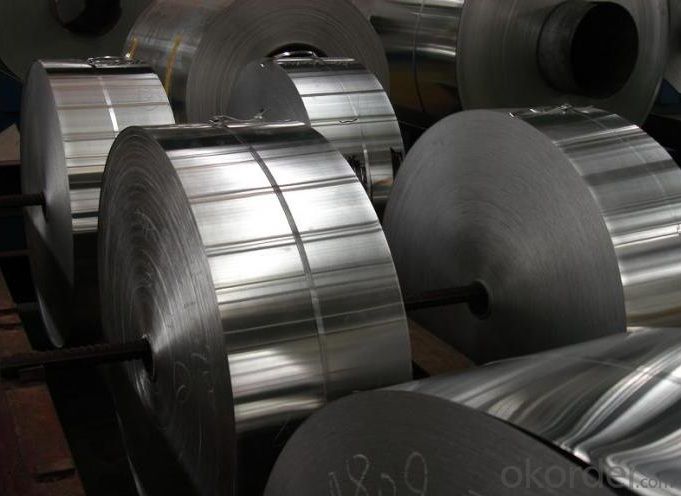
l FAQ
Q: Do you provide free samples?
A: Yes, free samples will be sent to you on freight at destination.
Q: Can I get your latest products catalogue?
A: Yes, it will be sent to you in no time.
Q: What is the MOQ?
A: 5 tons
Q: What are your payment terms?
A: We accept L/C, T/T.
l Contact Us
Name: Amanda Qian
Email: amandaqian@okorder.com
- Q: Use of aluminium strips for aluminium strips
- The aluminum belt has many uses, such as: aluminum plastic composite pipe, cable, fiber optic cable, transformer, heater, shutter and so on.
- Q: The question asks if it's possible to use aluminum strips for insulating the exterior walls of a building.
- <p>Yes, aluminum strips can be used for exterior wall insulation, but they are typically used as a vapor barrier or as part of a metal stud framing system rather than as an insulating material themselves. Aluminum is a good conductor of heat, so it's not an insulator. Instead, it's often used to create a barrier against moisture and air infiltration. For insulation, materials like fiberglass, cellulose, or foam are more appropriate. Aluminum strips can help secure insulation boards in place and provide a base for attaching exterior finishes.</p>
- Q: What types of aluminum strip are best suited for outdoor or exterior applications?
- <p>Yes, certain types of aluminum strip are particularly suitable for exterior applications. These include aluminum strips with high corrosion resistance, such as those with a 3003 or 5052 alloy composition. They are often coated with a protective layer, such as anodizing or a paint finish, to enhance their durability against weather conditions. Additionally, aluminum strips with a thicker gauge are more resistant to denting and wear, making them ideal for exterior use. It's also important to consider the specific environmental conditions of the application, such as exposure to saltwater or extreme temperatures, to select the most appropriate aluminum strip for the job.</p>
- Q: Is it possible to use aluminum strips as a material for exterior siding on a building?
- <p>Yes, aluminum strips can be used for siding. They are known for their durability, resistance to corrosion, and low maintenance requirements. Aluminum siding is lightweight, easy to install, and comes in various colors and styles, making it a popular choice for residential and commercial buildings. It also has good resistance to harsh weather conditions and does not rot or warp, which are common issues with wood siding.</p>
- Q: What benefits can be gained from using aluminum strips as a siding material for buildings?
- <p>Aluminum strips for siding offer several advantages, including durability, low maintenance, and resistance to rust and corrosion. They are lightweight, which makes installation easier and quicker. Aluminum siding is also energy-efficient, as it can help to insulate a building, reducing energy costs. Additionally, it is recyclable and environmentally friendly, contributing to sustainability efforts. The material is available in a wide range of colors and styles, allowing for great flexibility in design. It is also resistant to harsh weather conditions, making it a popular choice for various climates.</p>
- Q: What are the regular maintenance concerns associated with aluminum siding on buildings?
- <p>Aluminum siding is generally low-maintenance, but there are a few issues that may require attention. These include checking for dents or damage caused by impacts, ensuring proper drainage to prevent water damage, and cleaning to remove dirt and grime that can dull the finish. Additionally, it's important to inspect for signs of corrosion, especially in coastal areas with high salt content, and to address any loose or peeling paint to prevent further damage. Regular inspection and minor repairs can help maintain the longevity and appearance of aluminum siding.</p>
- Q: This question asks for guidance on ensuring the correct installation and ongoing maintenance of an aluminum strip.
- <p>To ensure your aluminum strip is properly installed and maintained, follow these steps: First, ensure the surface where the strip will be installed is clean and free of debris. Use a high-quality adhesive that is compatible with aluminum for installation. Apply the adhesive evenly and press the strip firmly into place. Check for any gaps or misalignments and correct them immediately. For maintenance, regularly clean the strip to prevent dirt buildup. Avoid using harsh chemicals that could damage the aluminum. Inspect the strip periodically for signs of wear or damage and repair or replace as necessary. Proper installation and regular maintenance will extend the life of your aluminum strip and ensure its functionality.</p>
- Q: Is it possible to construct awnings or canopies using aluminum strips?
- <p>Yes, aluminum strips can be used to make awnings or canopies. They are lightweight, durable, and resistant to corrosion, making them suitable for outdoor applications. Aluminum's strength and flexibility allow it to be bent and shaped easily, which is ideal for creating the curved or angled structures often seen in awnings and canopies. However, it's important to ensure that the aluminum is of sufficient gauge to support the weight and withstand environmental stresses. Additionally, proper sealing and treatment are necessary to prevent water damage and maintain the longevity of the structure.</p>
- Q: Is it possible to create a more energy-efficient roof using aluminum strips compared to other materials?
- <p>Yes, aluminum strips can be used to create a roof that is more energy-efficient than some other materials. Aluminum is a good conductor of heat, which can help in reflecting sunlight and reducing heat absorption, thus lowering cooling costs. Additionally, aluminum roofs can be designed with energy-efficient features such as solar reflectance and thermal emittance properties, which can further enhance their energy efficiency. However, it's important to consider the overall design, insulation, and installation quality to maximize energy efficiency.</p>
- Q: What is the standard thickness for aluminum strips and what is it commonly used for?
- <p>The thickness of aluminum strips can vary widely depending on their application, but common thicknesses range from 0.005 inches (0.127 mm) to 0.5 inches (12.7 mm). Aluminum strips are typically used in various industries such as construction, automotive, aerospace, and packaging. They are utilized for manufacturing parts, creating foils, and in applications requiring lightweight, strong, and corrosion-resistant materials.</p>
Send your message to us
Aluminum Strips Bunnings Ho Temper Transformer Aluminium Strips China Supply
- Loading Port:
- Shanghai
- Payment Terms:
- TT OR LC
- Min Order Qty:
- 5 m.t.
- Supply Capability:
- 5000 m.t./month
OKorder Service Pledge
OKorder Financial Service
Similar products
Hot products
Hot Searches
Related keywords
